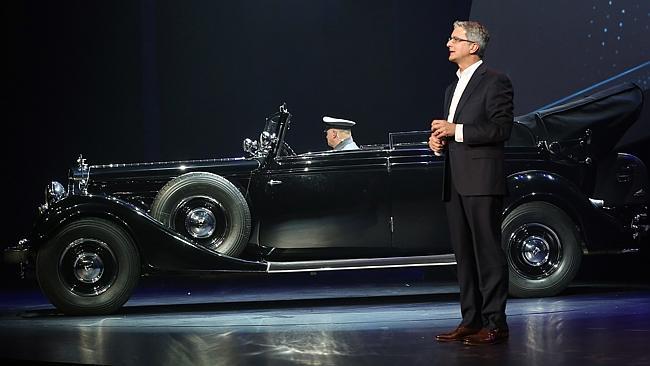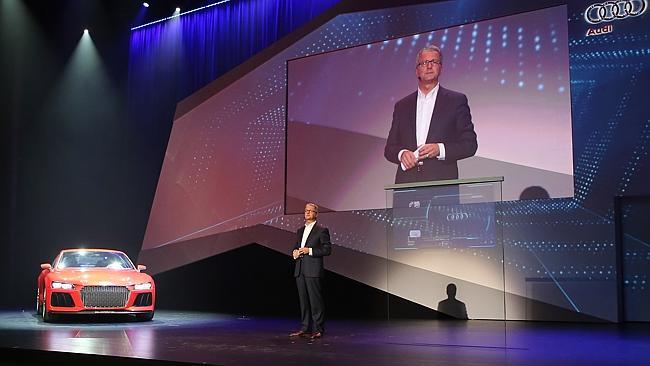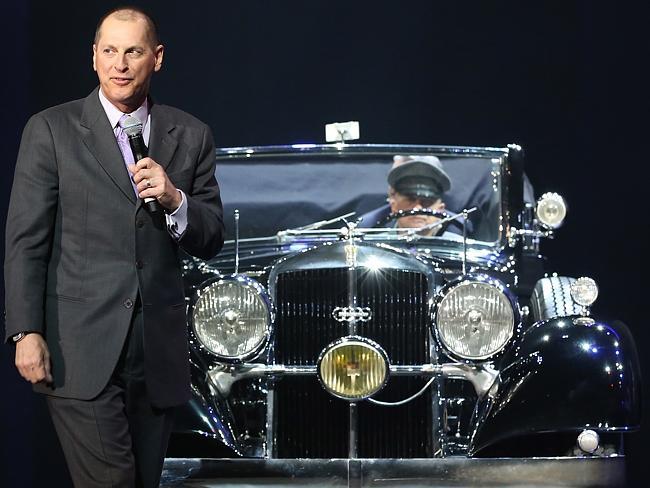Driverless cars in Audi's sights
FANCY being driven to work, or have someone else handle the bump and grind of holiday traffic? The "auto" is about to be put into the automobile.

Science
Don't miss out on the headlines from Science. Followed categories will be added to My News.
FANCY being driven to work every day, or have someone else handle the bump and grind of holiday traffic? The "auto" is about to be put into the automobile.
The world's biggest car makers have formed an alliance to come up with technology that will enable modern vehicles to talk to each other to prevent crashes - and take control away from drivers by being able to brake in an emergency or even swerve to avoid a collision.
That system will then enable traffic signals to talk to cars - if governments decide to make the costly and extensive upgrades.
"Car to car" technology will be showroom ready within three years, but government legislation threatens to slow its introduction and has created a new dilemma for road safety experts: how much control should be taken away from the driver?
German car maker Audi has a developed new automated driving system that uses radars, lasers, cameras, ultrasonic sensors - and the built-in navigation system - to enable cars to "pilot" themselves.
It unveiled its latest experimental vehicle by having it drive itself on stage on the eve of the Consumer Electronics Show in Las Vegas, with the executives sitting in the back seat.
Proving how showroom-ready the system is, Audi displayed the computer circuit-board that controls the electronic chauffeur - which processes 2.5 billion bits of information per second - and it was the size and thickness of an iPad.

A year ago, the computer equipment running the same experimental system took up the entire boot-space of a car.
"We are not reinventing the car, we are redefining mobility," said the chairman of Audi, Rupert Stadler.
For now, Audi's self-driving car will be restricted to freeways that meet new European standards and have special lane markings.
But Audi and others are developing camera technology that can read traffic light signals; some cars can already "read" speed limit signs, although in Australia, for now, they do occasionally get tripped up by the "40km/h" symbols on the back of buses, for example.
Audi is in a race with fellow Germans BMW, Mercedes-Benz and Volkswagen to be first to introduce the technology. Sweden's Volvo and Japan's Toyota are also pursuing automated driving systems.

All are debating the pros and cons of driver interference, while waiting for governments to legislate.
In North America, the states of Nevada and California have allowed exemptions for driverless cars to be tested on public roads under strict conditions, largely driven by the development of automated technology by Google Maps cars.
The same allowances have been made in localised parts of Europe and Japan; Australian regulations are yet to allow driverless cars.
When asked who will be first with an automated car, Audi's head of technology, Ulrich Hackenberg said "it depends on the cycle of the cars", referring the likely release dates of new models, which are typically set at least five years in advance and have limited flexibility.
Audi will likely debut the technology on its next $200,000 limousine, the A8, due in 2016 - but the technology will ultimately make its way onto city hatchbacks some time next decade, Mr Hackenberg said.

Meanwhile, Audi has been working with town planners and high-rise architects to determine what the cities of the future will look like, and how the automobile will be used.
One scenario is that, as energy costs rise, cars may become a luxury item, as they were when they were invented 125 years ago.
Automated technology means that you would be able to summon a car to collect you, drive you to your errands, and then pick you up later.
Last year Volvo showed self technology that enabled the experimental vehicle to park itself using a mobile phone app.
"Cars will become the largest social mobile device people own," said Mr Hackenberg.
This reporter is on Twitter: @JoshuaDowling


